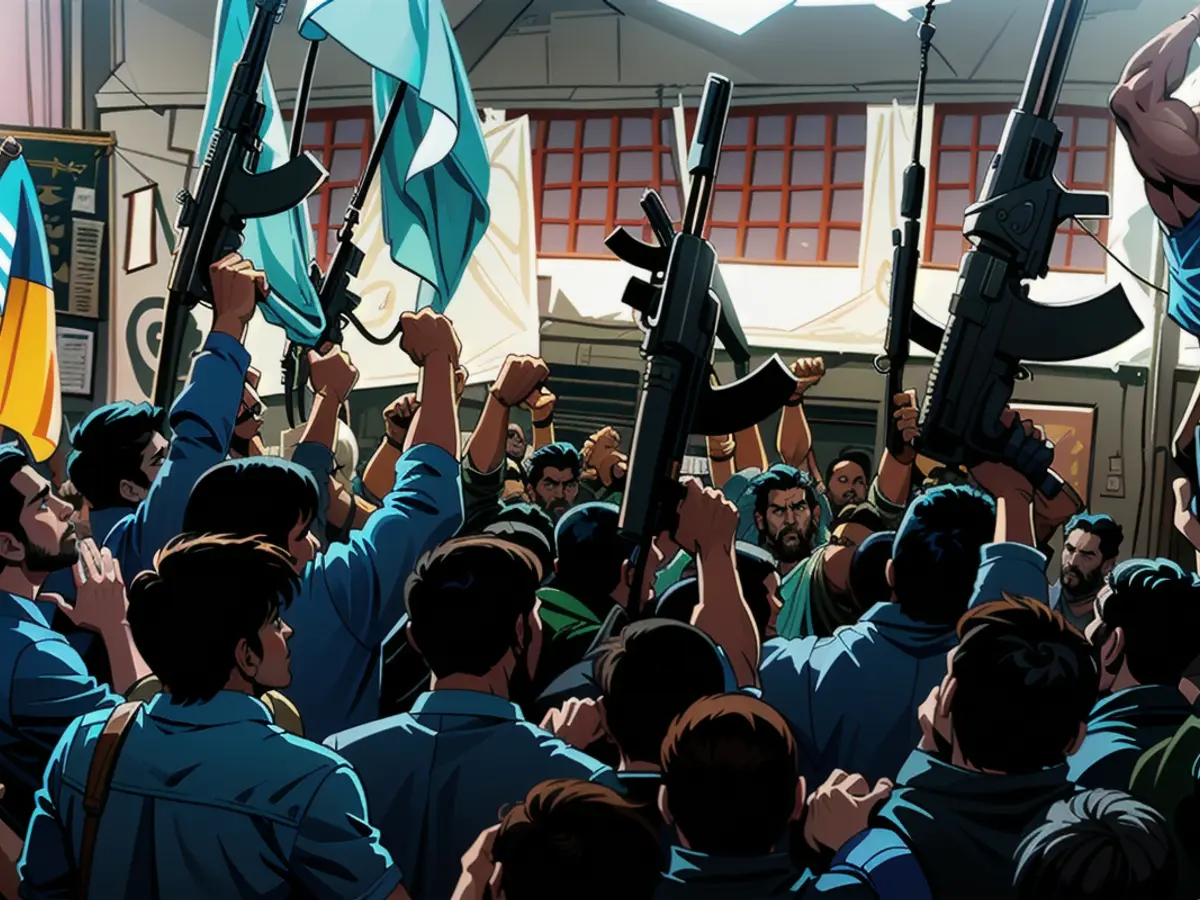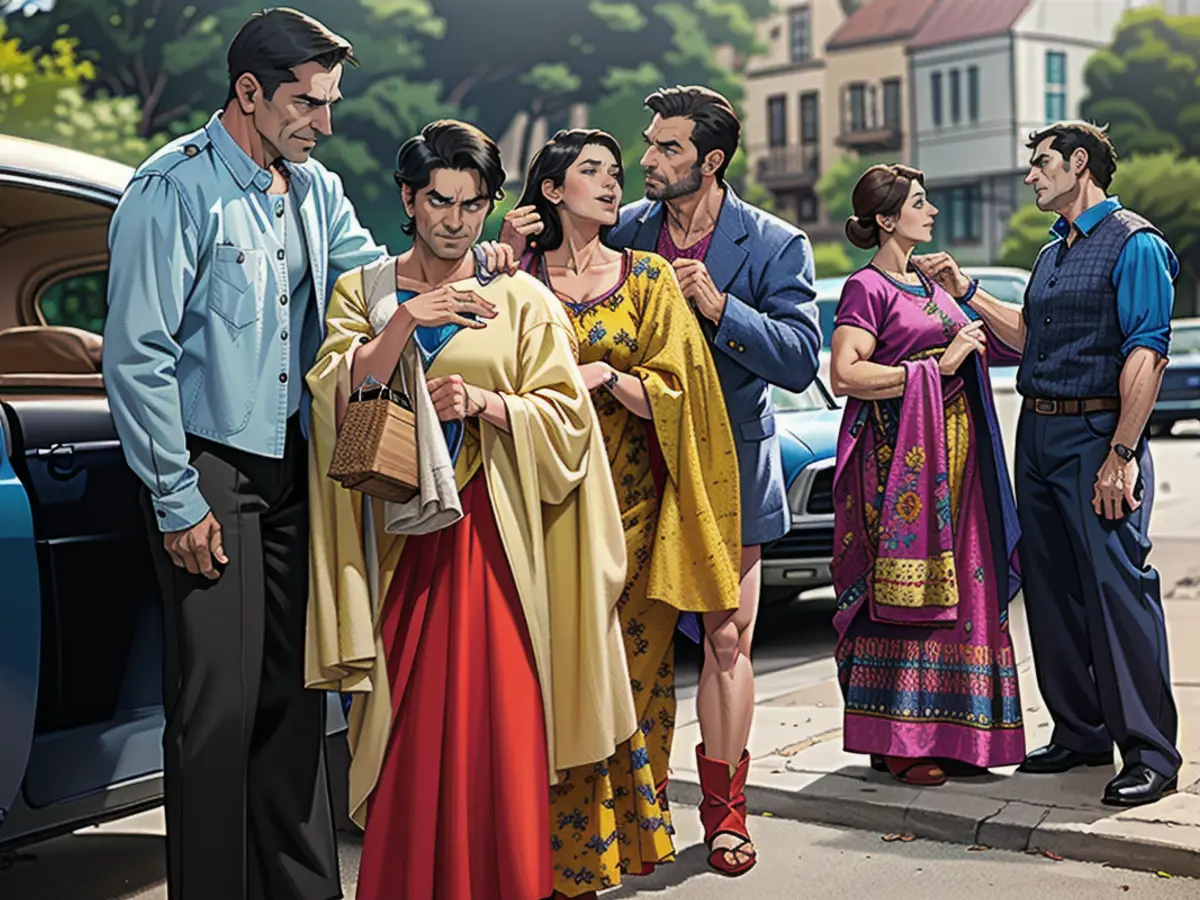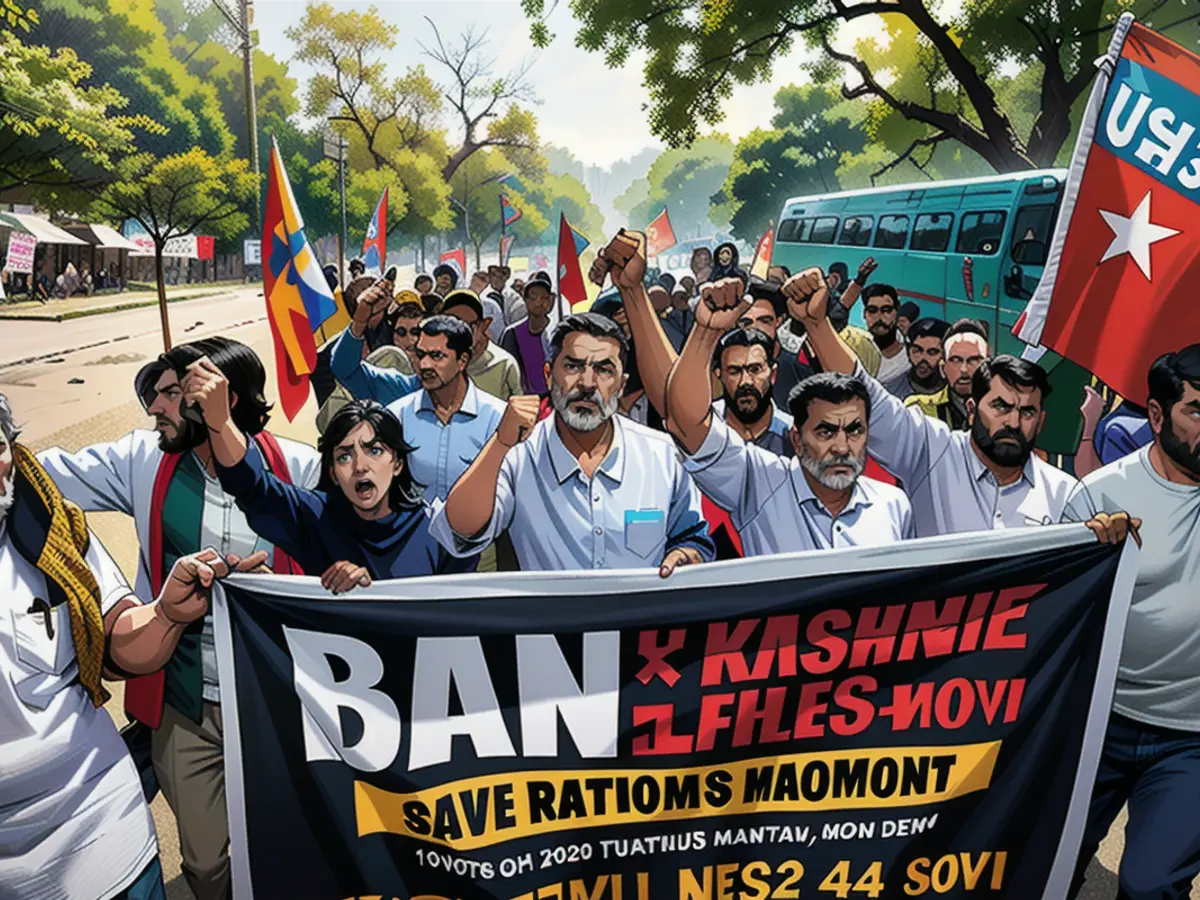A shift in Bollywood direction: The transformation of the largest film industry towards conservatism during the Modi years
India's film industry generates approximately 1,500 to 2,000 movies annually in more than 20 languages, earning it the title of the world's most prolific movie-maker. A significant chunk of these movies is in the Hindi language, which significantly influences the culture, identity, and economy of the nation. The industry is renowned for its musical extravaganzas, but it also tackles politics, religion, and society, reflecting the issues of the times.
Over the last decade, however, there has been a shift in the ideological tilt of Hindi cinema. It has moved towards the right, raising concerns among liberals and some industry insiders who argue that it promotes anti-Muslim stereotypes and silences opposing views. Although only a fraction of the movies created each year have these biases, they receive disproportionate attention and occasionally government backing, making them effective tools for propaganda.
The Hindu-first agenda advocated by the BJP government and its leader Narendra Modi is being reflected in the heroes of some movies. In contrast, the villains are predominantly Muslim characters who potentially threaten India's Hindu majority. Bringing religion into movies that do not have a religious focus is another strategy employed to propagate the BJP's ideologies, critics say.
Raja Sen, a renowned filmmaker, voiced his concern in an interview, saying that the trend was troubling, considering it was the election year. He added that the number of movies adopting a pro-government stance had increased.
The Hindu majority population in India has concerns over the prevalence of Muslims, citing new legislation that they perceive as disadvantageous to the minority and a rise in anti-Islamic rhetoric. Many see the ongoing national elections as a foregone conclusion, with Modi's BJP maintaining a commanding lead.
Although the BJP does not directly produce or incentivize these movies, many of them receive public endorsement from the party and the Government of India. Modi, personally, has endorsed some movies, which can increase audience interest and lead to commercial success. This, in turn, furthers the BJP's anti-Muslim agenda, dividing the nation along religious lines.
Tanul Thakur, a film critic and journalist, rued the increasing influence of politics on Hindi cinema. He also described how the Hindu nationalist narrative has become more blatant and the disregard for religious minorities more pervasive in recent years.

CNN reached out to the Ministry of Culture, the BJP, and the regulatory Central Board of Film Certification for comment.
"The BJP is not prejudiced against Muslims, and the community has benefited from Modi's leadership," a BJP spokesperson told CNN in a past interview. "India's constitution upholds the Indian democracy."
Trends of today
All the experts interviewed agreed that the production of pro-government and anti-Muslim movies had escalated under Modi's rule. They pointed to the commercially successful "Swatantrya Veer Savarkar," a biopic about a prominent Hindu-nationalist figure, as well as the upcoming "JNU," which they apprehended could misrepresent a university known for left-wing student activism.
"The Kashmir Files" and "The Kerala Story" are two movies with strong government support and representation. They validated the existence of Islamist militants who forced Kashmiri Pandits to flee Kashmir in the 1990s. The former was hugely successful commercially while the latter is due to be released soon. Both movies received tax exemptions in some BJP-ruled states.
"The Kashmir Files" portrays the plight of Kashmiri Pandits and was largely appreciated for the acting, while "The Kerala Story" attracted criticism for fanning religious tensions and distorting history. Both movies are critical of the Muslim community and deny targeting that community. "The Kashmir Files" brought in approximately $30 million with a $3 million budget, while "The Kerala Story" will hit the screens in 2023.

"The Kashmir Files" tells the story of Kashmiri Pandits fleeing violent Islamist militants. The director, Vivek Agnihotri, has repeatedly denied accusations that it propagates Islamophobia, asserting that it targets terrorism. Sudipto Sen, the director of "The Kerala Story," made identical claims of his movie having no religious bias.
As the national elections intensified, the concerns about the impact of the growing number of films with pro-BJP and anti-Muslim themes only deepened. The election has drawn attention to the degree to which the government is affecting media by harnessing the power of cinema to sway voters. Modi's undeniable popularity has given these movies the boost they need to reach a wider audience and propagate the BJP's narrative.
With these vivid representations of religious divides, India's multibillion-dollar movie industry is leaving an indelible mark on the nation's politics, identity, and culture. However, it remains to be seen how the people, and especially the Muslim population, will react to this trend.
A noted cultural commentator said, "The increased political biases of the movies are a reflection of the social and religious divide created by the BJP's policies and nationalist rhetoric." Others have expressed apprehension that the movies may widen the rift between Hindus and Muslims, leading to more discord and tension in an already polarized nation.
The "Article 370" film, which received support from Modi, is named after the Indian government's controversial decision in 2019 to strip Jammu and Kashmir of its special autonomy status. Critics accused the government of a heavy-handed crackdown during this time, while the film's detractors argued it distorted the facts and promoted the government's narrative that the move was essential.
During Modi's tenure, there has been a pattern of pro-government films surfacing. In the lead-up to the 2019 elections, there was a surge of these movies, such as a biopic on the prime minister himself that was delayed until after the polls closed to avoid appearing as political propaganda.

While nationalist films don't usually receive direct government support, the government may also exercise its influence through what is shown in theaters. India's strict censor board can pull movies or ban them from release for various reasons, including religious objections and accusations of obscenity and immorality.
This transformation has significantly impacted the entertainment industry in India. Far-right Hindu nationalists have been targeting movies that they find offensive, whether they criticize the government or promote Hindu-Muslim unity. As a result, filmmakers have practiced self-censorship, and streaming platforms have been forced to comply.
There have been examples of India's entertainment industry facing pressure campaigns from religious groups. Examples include Netflix's "A Suitable Boy," which featured a Hindu woman being kissed by a Muslim man in a Hindu temple, and Amazon's "Tandav," which depicted Hindu deities. In all three cases, the filmmakers faced backlash from far-right Hindu nationalists and politicians, resulting in calls for boycotts and police complaints against the streaming platforms and production companies. Netflix eventually removed "Annapoorani" from its platform at the request of the licensor.
Even during the colonial era, objections to movie storylines on religious grounds existed. However, the current situation is unique, as those in power and the majority demographic are using their influence to suppress minority voices.
The increased pressure on filmmakers and streaming platforms can come at a high cost. Movies are expensive to produce, making it unfeasible for filmmakers to create controversial works that might be subject to censorship or pulled from platforms.
Under Indian law, insulting religious feelings is punishable by up to three years in prison and/or a fine. Furthermore, the personal toll of being targeted by the far-right can be significant. Film professionals could face character assassinations, articles in right-wing publications, and backlash from their children's peers.

Even prominent figures in the film industry are not immune. After speaking out against "growing intolerance" in 2015, Muslim superstar Aamir Khan lost two brand ambassadorships, including a role with the government's own tourism body, as reported by local media.
In recent years, many in the arts and film community have become quieter and more cautious. Farooqui, a screenwriter based in Jaipur and Mumbai, says even those who used to speak openly about these issues have gone silent.
"Movies are expensive to make, and there's little incentive for filmmakers to produce controversial movies that could be pulled from platforms or censored by authorities, especially for independent creators with limited funding," says Farooqui.
The censorship and intolerance in Bollywood are not new, but the current environment has led to a stifling of creative expression and self-censorship. The transformational period has altered the atmosphere in the film industry and has had a significant impact on the types of stories being told.
Bollywood's history is dotted with films by early filmmakers who were influenced by the country gaining independence from British rule in 1947 and the violent partition that resulted. In this era, India's constitutional values and championing of secularism by its first Prime Minister Jawaharlal Nehru were prevalent in Bollywood movies. A wave of Hindu-Muslim brotherhood films emerged in the 1950s, with notable directors like Yash Chopra promoting deeper comments on societal and religious prejudice through their work.
In contrast, Bollywood today is far less diverse and more censored, with movie storylines often having to clear several hurdles before being released to the public.

Not all early Bollywood movies advocated for harmony; over time, there were patriotic films made about India-Pakistan disputes where Muslims or Pakistan were portrayed as the antagonists. These often represented Delhi's foreign policy perspectives at different moments in history. Raja Sen, a film director, asserts that the 9/11 terrorist attacks in America and the subsequent rise of Islamophobia in the West influenced Hindi films as well, prompting some Bollywood producers to embrace the stereotype of the Muslim villain.
In contrast to the earlier decades when governments provided tax exemptions for "safe movies" that focused on topics such as the evil of the caste system, Thakur, a journalist, observed that these productions mostly spoke for the country, on issues where everyone could unify, like the country's heritage or national identity.
The influence of India's swing towards the right has extended to the creative arts, according to Sen. He highlights how drama schools are suppressing the performance and creation of controversial content. Meanwhile, comedians face detention for allegedly insulting religious beliefs. Journalists have also expressed concern about the erosion of press liberties under Modi's administration.
"Over the past three or four years, we've witnessed a crackdown on many creative works, and it started really going after specific instances," Sen explained. "You're not allowed to be anti-government."
As opportunities for dissent within Bollywood dwindle, independent filmmakers are turning to regional Indian cinema, produced in local languages outside Mumbai, Bollywood's usual production hub. These films have witnessed a rapid growth, with the South Indian media and entertainment sector recording almost double-digit growth in revenues annually, as per a 2023 report by the Confederation of Indian Industry. Moreover, regional cinema offers a space for more daring narratives, especially in states not under BJP rule. Farooqui acknowledges that Tamil and Malayalam cinema, predominantly based in Tamil Nadu and Kerala (where the BJP doesn't govern) adequately accommodates a variety of voices and perspectives. He attributes this to political backing, as these states have their respective governments to champion their interests.
Despite this, some filmmakers are apprehensive about Bollywood's immediate fate if Modi and the BJP secure another term in power.
"Something has to change," Sen stated. "I think we're at a point where, over the next few years, if this government stays in power, the intolerance towards creativity will only intensify."
Read also:
- Caught up in the present: the end of "The Crown"
- Through New Year's Eve with TV shows
- What's next for the series hits?
- Which shows will be on?
The style of recent Hindi cinema has shifted towards promoting a pro-government and anti-Muslim narrative, which is a concern for liberals and industry insiders who argue that it promotes stereotypes and silences opposing views.
Some filmmakers have adopted a style that reflects the BJP's Hindu-first agenda, with Hindu characters portrayed as heroes and Muslim characters as potential threats to India's majority.
Source: edition.cnn.com








